| Title | A brain-computer interface for long-term independent home use. |
| Publication Type | Journal Article |
| Year of Publication | 2010 |
| Authors | Sellers, EW, Vaughan, TM, Wolpaw, J |
| Journal | Amyotrophic lateral sclerosis : official publication of the World Federation of Neurology Research Group on Motor Neuron Diseases |
| Volume | 11 |
| Pagination | 449–455 |
| Date Published | 10/2010 |
| ISSN | 1471-180X |
| Keywords | User-Computer Interface |
| Abstract | Our objective was to develop and validate a new brain-computer interface (BCI) system suitable for long-term independent home use by people with severe motor disabilities. The BCI was used by a 51-year-old male with ALS who could no longer use conventional assistive devices. Caregivers learned to place the electrode cap, add electrode gel, and turn on the BCI. After calibration, the system allowed the user to communicate via EEG. Re-calibration was performed remotely (via the internet), and BCI accuracy assessed in periodic tests. Reports of BCI usefulness by the user and the family were also recorded. Results showed that BCI accuracy remained at 83% (r = -.07, n.s.) for over 2.5 years (1.4% expected by chance). The BCI user and his family state that the BCI had restored his independence in social interactions and at work. He uses the BCI to run his NIH-funded research laboratory and to communicate via e-mail with family, friends, and colleagues. In addition to this first user, several other similarly disabled people are now using the BCI in their daily lives. In conclusion, long-term independent home use of this BCI system is practical for severely disabled people, and can contribute significantly to quality of life and productivity. |
| URL | http://www.ncbi.nlm.nih.gov/pubmed/20583947 |
| DOI | 10.3109/17482961003777470 |
A brain-computer interface for long-term independent home use.
Downloadable:

